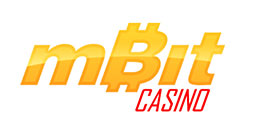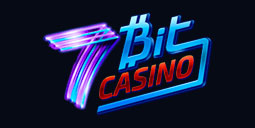“Twitter and Facebook have bigger issues — like selling our data, changing elections and enabling hatred to disperse through spiders and fake profiles. It is difficult not to laugh if a business like Twitter – that promotes millions of bogus profiles also allows people to buy bogus followers and enjoys – all of a sudden has a spiritual headquarters in the crypto space”
Seeing some good, some seeing stupidity
Released at Wed, 28 Mar 2018 09:28:54 +0000
For these companies to take such a bold stance against illegal and scam cryptocurrency related companies means they’re serious about not letting them spread. However, if they’re that serious, their approach ought to be far more clinical and focused. It must allow legitimate companies to flourish and develop through their platform advertisements.
The issue includes Twitter taking a broad approach to all cryptocurrency advertisements, banning wallets and exchanges also, unless they’re recorded on certain key stock markets.
“As customer trends evolve, as our approaches to safeguard the open internet get much better, so do online scams. Improving the ads experience across the web, whether that is removing harmful ads or intrusive ads, will continue to be a top priority for us”
“In some instances, it may make sense for those companies to have a step back in the industry and build their comprehension.”
There are not many solutions, legitimate or otherwise, that are recorded on stock markets, that creates this blanket ban even more damaging, but also helps clarify its base. As Twitter can’t moderate and determine the validity of all exchanges and wallets, the banning that is has made a decision to issue needs to be an overarching one.
Andy Bromberg, CoinList CEO, echoes those thoughts, also figuring out how difficult it’s in such a huge space to separate the good from the evil, but he considers that steps should be taken to educate these kinds of businesses about the best way best to tell valid endeavours against scams.
Government authorities have stepped up their own match in warning people about the risks of this cryptocurrency space with all the mainstream adoption spilling out into everyday life.
However the toying came to an end with a snap as Twitter announced that it would really be putting up a fairly substantial ban on cryptocurrency marketing. That is in accordance with Google and Facebook, who did the same for reasons that are similar also.
Kurt Wagner, frome Recode, pointed out something quite interesting from the Twitter ban that appears to gain its CEO, Jack Dorsey, in addition to his other crypto businesses.
Twitter has stated the prohibition will cover advertisements of Initial Coin Offerings (ICOs), in addition to token sales. This can be considered an attempt to stamp out fraudulent, deceptive and sterile ICO scams that are currently rife in the market.
It seems like an additional step by Twitter that is too unpleasant about the crypto community as a whole. There are some that believe it’s hypocritical from a platform that is full of different scams.“With the increasing number of ICOs coming to market, it’s an impossible task for anybody, even less platforms like Twitter or Facebook, to stay at the top of that ICOs and cryptocurrencies are real versus frauds”
Google’s director of renewable ads Scott Spencer stated in a blog post that put out to explain the reasoning for the advertisement ban, and after it had been announced:Daniel Duarte, CTO of all Auctus, a Blockchain company that likely falls under the gambit of this ban, but sees the merit in it also hopes for an opportunity for good jobs to reside on those platforms.
“I’m curious to see where the line from the sand is in fact attracted by Twitter and other interpersonal networking platforms. In the crypto community, there is a small handful of players that are bad — just like you can find in any industry — and they need to be taken care of accordingly. I don’t think that means we must ban every business that is utilizing social media to educate potential investors.”
— Ronnie Moas (@RonnieMoas) March 26, 2018
However, that popularity merely feeds a frenzy, which isn’t hard to take advantage of for scam companies operating from the cryptocurrency space. There has to be a balance struck between stifling innovation with all the banning of its marketing, and enabling scams to run riot.
#bitcoin should not be falling on information that #Twitter#Facebook & #Google will ban #crypto#advertising. Actually … it ought to be going in the opposite direction … this will cause a trip to quality … cash flow from #altcoins and into $BTC … Do you concur?Twitter has been toying with cryptocurrency for the past couple of weeks. To begin with, rumours emerged that it would be after Facebook and Google in putting a ban on crypto marketing. Subsequently, cryptocurrencies received a glowing recommendation from Twitter’s CEO, Jack Dorsey, who stated Bitcoin is going to be the planet’s — and also Internet’s — only future money.
Twitter was taking measures to stop crypto-related accounts from “engaging with other people in a deceptive way”, but faced calls to enact futher measures following bans from Facebook Inc. and Alphabet Inc. (Google’s parent company).The same as Google, Twitter’s reasoning for the ban is the security of its viewers from deceptive content.
But in addition, there are people who think Twitter’s overreaching ban is stifling all of the good out there that has to be supported, and requires advertisements to get that service.
However, not everybody feels that it’s a fantastic ploy kind Twitter. The micro-blogging site isn’t exactly squeaky clean, and also for this to carry such a broad swipe at cryptocurrencies, while allowing different scams go awry is something that frustrates Trey Ditto, CEO of Ditto.“As the crypto community keeps growing on Twitter, and the likes, so do the pervasive scams that try to take advantage of individuals considering the distance. “It is not surprising that Twitter has achieved this and the choice of important channels to ban advertisements will help stifle bad actors to ensure in the long run, ads for good jobs can survive across these platforms.”
“Although definitely ICO advertising must have been a substantial source of revenue for Twitter, the consequences of fraudulent activities just were not worth the risk.”Much like Facebook, that said its banning policy would be “intentionally wide” to start with, Twitter is taking aim at several small business sectors over the cryptocurrency market place: ICOs, wallet and exchanges solutions are all in their crosshairs.
There is almost direct evidence that Twitter dropped to the peer pressure in the likes of Facebook and Google using those huge blanket bans, but it may obviously be a sign of something greater brewing.For your safety of users
The concept of preventing scam ICOs from attaining a susceptible marketplace should be commended, and might be the right way to start controlling the spread of deceptive crypto businesses. However, as Zennon Kapron, director of the financial consultancy Kapronasia pointed out, It’s not that easy:
But private businesses like Robinhood or Coinbase cannothttps://t.co/lUTPxxNQ77
With this kind of a bold and extensive assault in the burgeoning cryptocurrency space, reactions have been mixed. There are people who believe that scams in the marketplace with a path to reach greater susceptible people is harmful.However, the ban extends further and bans ads by cryptocurrency exchanges and cryptocurrency wallet solutions, unless they are public companies listed on certain big stock markets.
“There is a tremendous number of low-income jobs from the cryptocurrency space – scams, scams, and poorly thought-out theories. This ancient in the business, most companies just don’t possess the tools and experience to properly evaluate such token businesses and separate the wheat from the chaff.”
Adverts for cryptocurrency have sprouted up everywhere, from London’s transportation network to Western tv. Movie and sports celebrities have thrown their names supporting them as their fame grows.The banning of crypto marketing appears to be a symptomatic response to heal an ailment from the most broad and handling way possible. Google, Facebook and now Twitter have obtained a blanket approach that wipes out not just the bad, but lots of the good.
A Wide blanket
Twitter Takes Aim In Dodgy ICOs But Throws A Blanket Ban On All Crypto Advertising - July 2025
EXPERTLY REVIEWED
MOBILE FRIENDLY
FAST PAYOUTS
- CasinoRatingBonusVisit Casino
Get your 100% Match Bonus up to $1000!
200% match bonus up to 2000
Up to 5 BTC
100% match bonus + 180 free spins
Get up to 1 BTC on First Deposit!
Welcome bonus up to 1.5BTC + 250 free spins
Get your 5 BTC Welcome Bonus
Top Rated







Search
Casino List
- Bovada Casino
- 7bit Casino
- Bitstarz Casino
- Sun Palace Casino
- Ignition Casino
- Tangiers Casino
- Nitrogen Sports Casino
- Casumo Casino
- Fortunejack Casino
- Mars Casino
- Mbit Casino
- Cafe Casino
- Drake Casino
- Grand Fortune Casino
- CryptoReels Casino
- Wild Casino
- Betchain Casino
- Oshi Casino
- Bitcoin Penguin Casino
- Joe Fortune Casino
- Vegas Casino.io





